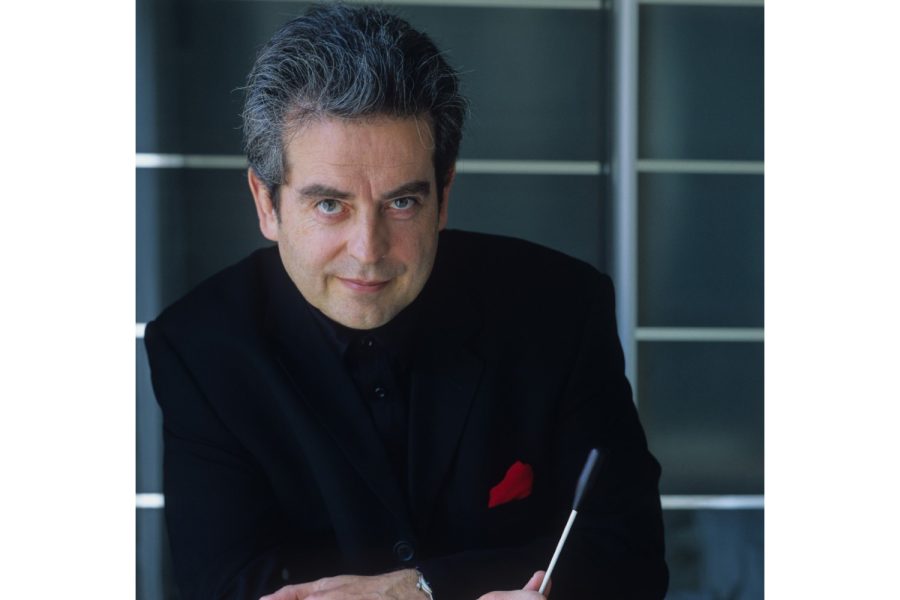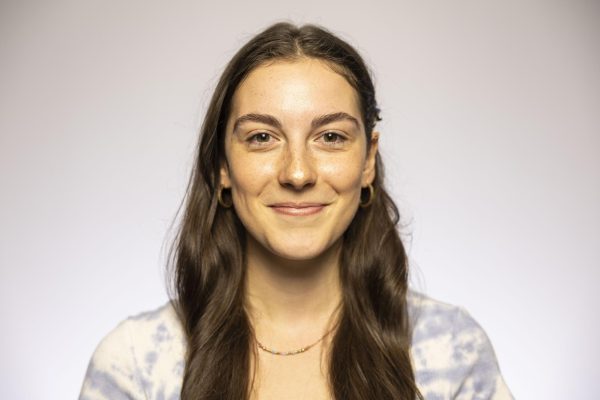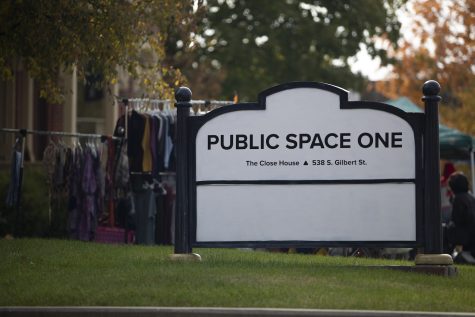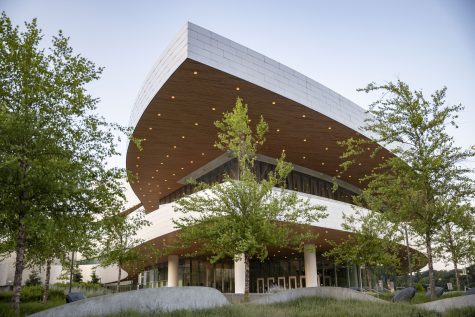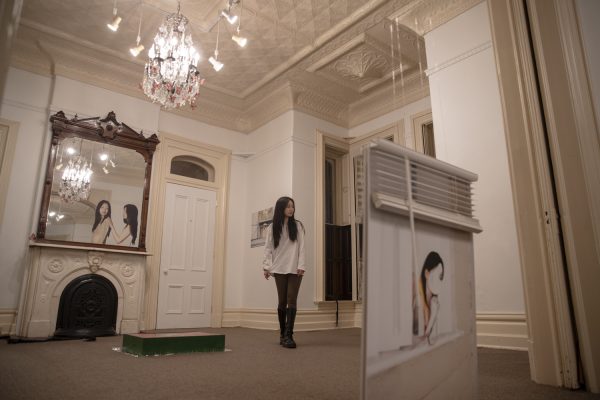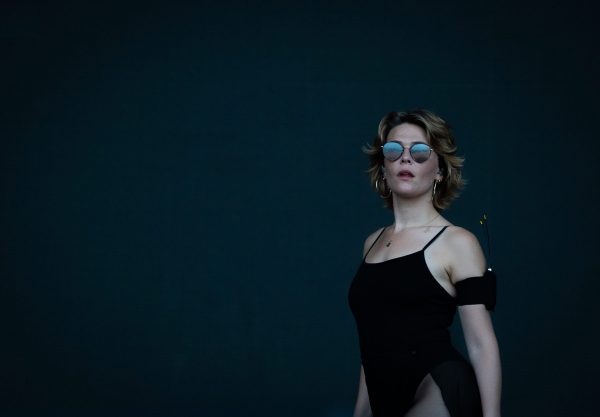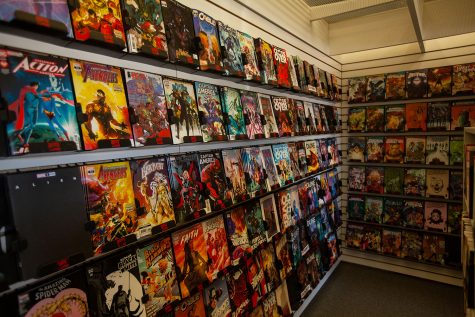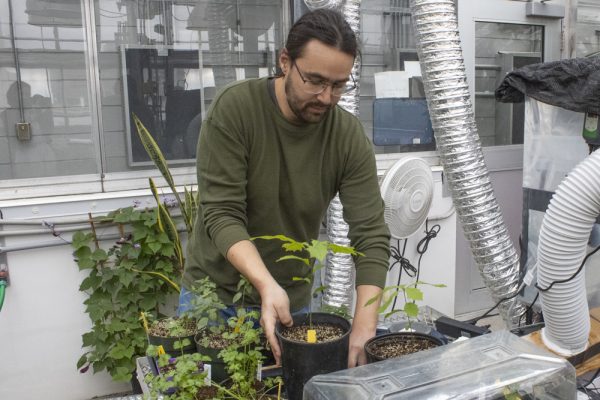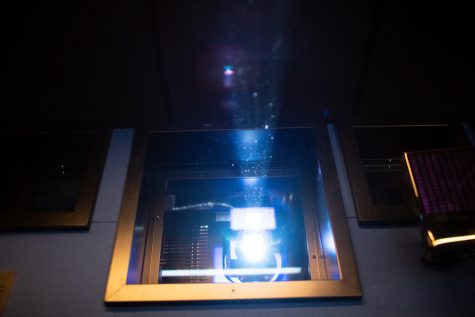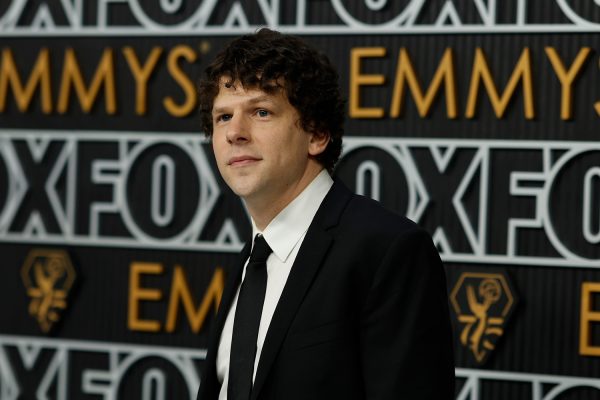Contemporary music festival to bring international collaboration to Iowa
From April 17-23, the Festival of Contemporary Music from Israel will showcase living Israeli composers for the University of Iowa’s Provost’s Global Forum.
April 11, 2023
The Voxman Music Building will soon be filled with a diverse selection of Israeli compositions that tell powerful stories and bring Israel to the forefront of modern music.
The Festival of Contemporary Music from Israel will be held from April 17-23. It will be hosted by the University of Iowa Center for New Music with support from UI International Programs and the UI School of Music.
The UI Center for New Music is a performance organization focused on contemporary music styles from the mid-20th century into the early 21st century. Founded in 1966 with the help of a grant from the Rockefeller Foundation, the Center for New Music is committed to bringing music to a diverse audience.
David Gompper, the director of the Center for New Music since 1991, organized the Festival of Contemporary Music from Israel after he was approached by the Chicago Consulate about collaborating with the Jerusalem Academy of Music and Dance on an event that would bring music from living Israeli composers to Iowa.
Gompper’s experience with the Russian Contemporary Music Festival in 2000 made him the ideal candidate to organize this event, which will also be presented by the 2023 Provost’s Global Forum. The forum is the premiere annual event at the UI campus focused on international and global issues. He said he values the opportunity to play for an international audience.
“Wherever you want, you just don’t want to play for just locals,” Gompper said. “The locals are great, but we want to play within international borders.”
The festival is a week-long event consisting of nine concerts. Amit Dolberg, one of Israel’s leading performers of new music, curated the concert’s selection of composers.
Dolberg joined the pursuit of the festival as curator when Gompper reached out to him and requested his participation. Dolberg believed the festival was a great opportunity to celebrate Israeli music and the Jerusalem Academy’s 90th Anniversary.
More than 30 composers will be featured in the festival, including most composer faculty members from the Jerusalem Academy. Dolberg’s work with other composers outside of the academy led him to include them in the festival as well.
The Festival of Contemporary Music from Israel is the first event of its size and scale to bring Israeli music to Iowa.
According to Dolberg, it could not occur at a better time. New laws are being introduced in Israel every day, laws that Dolberg considers threats to democratic freedoms. He said music is a form of retaliation.
“As musicians, we believe that we need to be a beacon of freedom, to play whatever we want to play and to say whatever we want to say,” Dolberg said. “And to do it in Iowa and show this very broad spectrum of musical languages, opinions, and generations — it’s a big thing for us to show a different side of Israel.”
Each of the concerts will focus on a different theme. For example, one concert will preview a piece that explores the composer’s loss of his father, who was a philosopher and founder of the philosophy department at Tel Aviv University.
Another concert will showcase acoustic and electroacoustic music in honor of Israel’s first electroacoustic center recently opening and the impact of electronic music on the contemporary music scene.
Meanwhile, another concert will be led by Jerusalem Academy’s conductor-in-residence and include student performances. The fourth concert in the festival will feature the UI chamber ensembles.
A foundational aspect of the festival is that all work showcased must be produced by living composers, an idea Gompper developed.
“[The Chicago Consulate] pitched this pitch, and I just thought, ‘Well, why not?’” Gompper said. “The composer is not dead. They’re not dead white males. They’re living, and so why don’t we connect with that?”
The festival is an example of how different countries and cultures can influence one another. Because of Israel’s small size and geographic location, it was unable to experience that influence and growth until about 20 or 30 years ago, Dolberg said.
With easier modes of travel, Dolberg said composers from younger generations can study abroad, immerse themselves in diverse cultures, and try to discover how their Israeli identity fits into the world around them.
“Many of [the composers] come back to Israel and teach the next generation, and you can already see the influences, especially of Europe, already existing here in Israel. So, it’s much more open,” Dolberg said.



